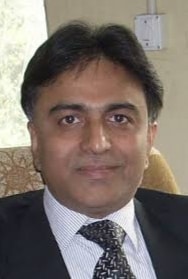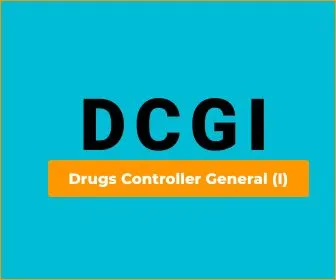Last Updated on December 31, 2023 by The Health Master
With three more fixed dose combination (FDC) drugs being declared rational, taking the number of FDCs declared rational to 86 under 294 FDCs category, the Drugs Controller General of India (DCGI) has directed state drug controllers to ask the manufacturers who are already holding licenses of 83+3 FDCs to submit the applications to it by March 31, 2021.
To download DCGI’s letter dated 08-09-2020, click here
The 294 FDCs were licensed to manufacture and market by state licensing authority without prior approval from DCGI. Of them, 86 FDCs were found to be rational by the Drugs Technical Advisory Board (DTAB) so far.
Earlier 83 FDCs were declared rational. As per the report of DTAB dated July 29, 2020, there are three more FDCs which have been considered as rational under 294 FDCs category. The three FDCs are atenolol+losartan+hydrochlorothiazide, duloxetine+mecobalamin, mecobalamin+vitamin B6+folic acid.
In a bid to regularize these FDCs, DCGI has written to state and Union territory drugs controllers instructing them to ask manufacturers already having licenses for such FDCs to obtain approval from the central drugs licensing authority.
Also read: Scheme announced to boost cultivation of medicinal plants
Clarifying strength and dosage forms of FDCs mentioned in 86 rational FDCs list, DCGI stated that manufacturers having product license issued by SLA in specific dosage form and strength prior to November 28, 2007 can continue to manufacture FDCs in the same strength and dosage form after getting approval from the Central drugs licensing authority.

“The manufacturer submits copy of product license issued by SLA to any firm indicating that the product in specific dosage form and strength was licensed prior to November 28, 2007, the same will be considered for issuance of permission by DCGI in accordance with the defined pathway,” stated DCGI Dr V G Somani.
Further, it has been observed that only a few applicants who are already having manufacturing licenses for such FDCs issued by SLA have applied for obtaining approval from DCGI. Now, it has been decided that manufacturers/stakeholders who are already holding licenses for these FDCs from SLA may submit their applications by March 31, 2021, said Dr Somani.
The DCGI in a letter on February 27, 2019 issued a detailed pathway for obtaining permission from it in respect of 83 FDCs declared as rational. The following pathway is required to be followed by the manufacturers.
The applicant shall submit Form 44 mentioning dosage form and strength along with treasury challan for each FDC, name and composition of FDC, copy of product permission issued by SLA to any firm prior to November 28, 2007 as documentary evidence, copy of manufacturing license in Form 25/28 and Form 29 for manufacturers who are not holding product permission from SLA and want to apply for these FDCs, serial no of FDC as per the list available on website, stability studies data (six months accelerated data of three batches) and test specifications of the FDC along with method of analysis.
The DCGI asked SLAs not to issue any product license in respect of these 83 FDCs henceforth without its approval. Subsequently, the date for submission of such applications was also extended via DCGI letter dated August 19, 2019.
The DCGI received complaints from consumer associations in 2007 regarding rationality of certain FDCs marketed in the country. As a part of follow up action of complaints, DCGI prepared a list of 294 FDCs and directed all state and UT drugs controllers to withdraw these 294 FDCs which were licensed without approval of DCGI. However, the manufacturers’ associations got a stay from the Madras High Court in respect of directions issued in the matter.
The matter was then placed in DTAB in the 56th meeting on January 16, 2008. A subcommittee was set up by DTAB to examine these FDCs. Accordingly the subcommittee along with an industry appointed committee under the chairmanship of Dr RK Sanghavi and independent consultants examined these FDCs over six years and submitted its report to the DTAB.
The subcommittee came out with a classification of 294 FDCs under A, B, C, D, E, F, G categories. The 83 FDCs which were declared rational were classified under C category. The 67 FDCs which were declared irrational were classified under D category. The 85 FDCs which were found banned and duplicate were put under A and B categories. The 66 FDCs which required data to be submitted or clinical trials to be done were classified under E and F categories.
The DTAB in its meeting held on February 16, 2015 agreed with the recommendations of the subcommittee. All court cases pending the Madras High Court were transferred to the Supreme Court. The apex court accepted the report of DTAB on December 15, 2017.
Recently approved three FDCs have fallen under the G category. These FDCs were not examined adequately over the six years and were pending for further scrutiny by experts. The subject expert committee examined these three FDCs now and declared them rational.
Commenting on three more FDCs declared rational under 294 FDCs category, Dr R K Sanghavi, chairman – Medical Committee & Nutraceutical Committee, IDMA said “It is an encouraging development for the industry that three FDCs were declared rational and approved. This is a step forward for 294 FDCs. We look forward to 49 FDCs which require clinical studies and 17 FDCs which require more data to be also considered as rational as soon as possible. These FDCs under 294 FDCs category have not been declared either rational or irrational so far. We hope these FDCs will be duly considered and the outcome is positively announced.”
Talking about the strength and dosage form of FDCs declared rational, he said these issues were never part of deliberations of the subcommittee set up to screen 294 FDCs. It would be medically appropriate if the recommended strength of these FDCs as per clinical and published evidence is considered for approval for licensing purposes, said Dr Sanghavi.
The Health Master is now on Telegram. For latest update on health and Pharmaceuticals, subscribe to The Health Master on Telegram.


